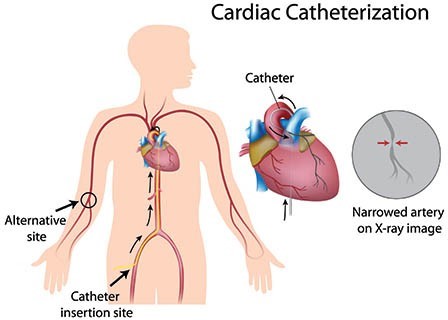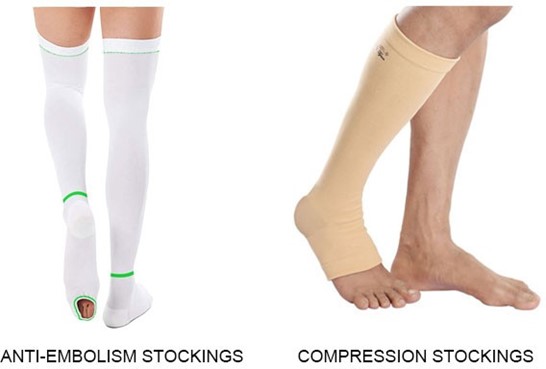A nurse is providing preoperative teaching for an adolescent who is scheduled for a cardiac catheterization. Which of the following instructions should the nurse include?
You can resume a regular diet 3 days after your procedure.
You can take a shower 1 day after your procedure.
You can begin exercising 2 days after your procedure.
You can return to school 1 week after your procedure.
The Correct Answer is B
Answer: B. You can take a shower 1 day after your procedure.
Rationale:
A. You can resume a regular diet 3 days after your procedure:
There is typically no need to delay resuming a regular diet for three days after a cardiac catheterization. Most clients can resume their usual diet shortly after the procedure once they are fully awake and any nausea has resolved.
B. You can take a shower 1 day after your procedure:
It is generally safe to shower the day after a cardiac catheterization as long as the insertion site remains protected. Clients should avoid soaking in a bath or swimming until the site is fully healed to prevent infection.
C. You can begin exercising 2 days after your procedure:
Strenuous activities, including exercise, should generally be avoided for a few days to a week following a cardiac catheterization. This allows time for the insertion site to heal and reduces the risk of complications such as bleeding.
D. You can return to school 1 week after your procedure:
Most clients can return to school or normal activities within a few days, provided they feel well and avoid excessive physical exertion. A full week off is typically not necessary unless specified by the healthcare provider based on the individual’s recovery.

Nursing Test Bank
Naxlex Comprehensive Predictor Exams
Related Questions
Correct Answer is C
Explanation
Elevating the legs helps to reduce swelling and promotes venous return, which is beneficial for a client with phlebitis. This action improves circulation and aids in preventing the formation of blood clots.
Rolls the extra stocking material down to the client's knee: This action is incorrect because elastic antiembolic stockings should be applied evenly and smoothly without any excess material. Rolling down the extra material can create folds and wrinkles, which can compromise the effectiveness of the stockings and potentially cause discomfort or impaired circulation.
Massages the legs before applying the stockings: Massaging the legs before applying antiembolic stockings is not recommended. Massaging can stimulate blood flow and may dislodge any existing blood clots, posing a risk of embolism. It is important to handle the legs gently and avoid any aggressive or manipulative actions that can disturb the clots.
Positions the client in a chair before applying the stockings: Positioning the client in a chair before applying antiembolic stockings is not the correct action. It is preferable to have the client lie flat in a supine position, with the legs elevated, while applying the stockings. Lying flat helps improve venous return and ensures proper alignment and positioning of the stockings.

Correct Answer is A
Explanation
The action by the AP that indicates an understanding of the procedure is elevating the client's legs before applying the stockings. Elevating the legs can help reduce swelling and make it easier to apply the stockings.
Option b is incorrect because instructing the client to dorsiflex their feet while applying the stockings may not be necessary.
Option c is incorrect because massaging the client's legs before applying the stockings may not be necessary or appropriate.
Option d is incorrect because folding the top of the stockings over after applying them may not be necessary or appropriate.
Whether you are a student looking to ace your exams or a practicing nurse seeking to enhance your expertise , our nursing education contents will empower you with the confidence and competence to make a difference in the lives of patients and become a respected leader in the healthcare field.
Visit Naxlex, invest in your future and unlock endless possibilities with our unparalleled nursing education contents today
Report Wrong Answer on the Current Question
Do you disagree with the answer? If yes, what is your expected answer? Explain.
Kindly be descriptive with the issue you are facing.
